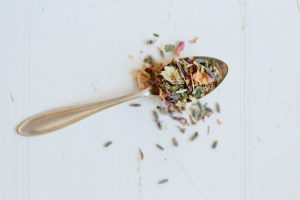The Naturopathic Co.

You're using an outdated browser. Please upgrade your browser to improve your experience.
We should all aim for 7-9 hours of uninterrupted sleep each night, however many of us aren’t getting that. In addition, some of us are getting that and yet still wake up feeling tired and sluggish. In this instance, it’s good to take a close look at diet and see where we can improve nutritional intake for sleep.
Melatonin is the primary factor affecting your sleep. The sleep/wake cycle is regulated by the body’s circadian rhythm. Your circadian rhythm is regulated by the hormone melatonin, which is produced in your brain. Melatonin is also present in many types of foods including corn, cherries, kiwi, pistachios, strawberries, tomatoes, grapes, walnuts and capsicum.
Tryptophan is an amino acid that the body uses to produce serotonin, a chemical that helps to regulate sleep, and melatonin. Tryptophan is found in protein foods such as sunflower seeds, chia seeds, sesame seeds, pumpkin seeds, turkey, cheese, tofu, eggs, beans, and oats.
The body needs a variety of nutrients to produce melatonin, including adequate B complex vitamins. But make sure if you’re taking a B vitamin supplement that you take it in the morning, as it will have the opposite effect and keep you awake at night if taken before bed!
B vitamins are found in foods such as leafy greens, eggs, dairy, beans, poultry, meat and salmon.
B12 in particular is linked to sleep issues and reduced energy levels. B12 is only found in animal protein such as beef, fish, eggs, chicken, dairy, however vegans can supplement with nutritional yeast for B12 intake.
A study in the Journal of Clinical Sleep Medicine found the combination of Omega 3 Fatty Acids and vitamin D improved sleep. It is believed that the combination of these nutrients have a regulating effect on serotonin. Oily fish such as salmon, mackerel, tuna, as well as flaxseeds, walnuts, and chia seeds are good sources of omega 3s. Vitamin D in food can be found in egg yolks, mushrooms and fortified dairy.
Magnesium is involved in more than 300 metabolic reactions in the body, and has also been shown to improve the symptoms of insomnia and sleep quality when taken before bed. Magnesium is found in dark chocolate, nuts, avocado, legumes, seeds, tofu, bananas and whole grains are all good sources of magnesium.
Calcium is an important factor in our sleep quality. Calcium is found in dairy products, sardines, fortified plant-based milks, almonds, edamame, tofu, figs, lentils, dark leafy greens, seaweed, turnips, salmon from a tin with bones.

Yvette is a qualified Naturopath and Nutritionist, MINDD Practitioner, member of the Naturopaths and Herbalists Association of Australia.
Yvette specialises in the treatment of gut health and digestive complaints, skin issues, mood disorders, hormonal concerns, fatigue, and more.
Comments are closed.